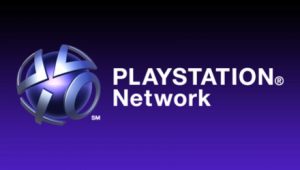
The PlayStation Network (PSN) is finally spluttering back to life after a three-week coma. Now begins the process of evaluating exactly how much damage the outage has done to Sony’s PlayStation console business, writes Lance Harris.
The data breach, described as one of the most serious of all time, and the resulting network downtime are serious enough on their own. But following on a series of blunders that have made Sony look arrogant and out of touch since the launch of the PlayStation 3, the incident is nothing less than a disaster.
The missteps, big and small, that Sony has made this console generation are the stuff of legend and Internet memes. The company launched the PS3 at least a year late and with a US$599 price tag that didn’t even cover the cost of manufacturing a unit. It glibly dismissed criticism of the console’s price by saying that customers would take a second job to pay for the PS3 if they had to.
Other problems quickly piled up in the console’s launch window, ranging from the absence of vibration feedback in its controllers through to a lack of compelling exclusive games for the first two years of the PS3’s life and programming headaches for developers working on the complex system.
At the heart of nearly every one of the PS3’s woes was Sony’s decision to cram it with expensive, exotic technologies such as the Cell processor and the Blu-ray disc format. Desperate to drive revenues for its film studio and consumer electronics businesses, Sony made a huge group-wide bet on a media format.
Sony thought Blu-ray would be as important to and as successful for the PS3 as CD was for the original PlayStation and DVD for the PS2. It underestimated how quickly consumers would move to online services and overestimated the value they would see in Blu-ray as an upgrade from DVD.
While the PS3 ensured that Blu-ray became the dominant standard for high-definition films, it was a Pyrrhic victory that has cost Sony billions of dollars as well as a huge loss of console market share.
Sony got left behind by Nintendo, which was innovating around the user interface with its motion control scheme, and Microsoft, which was dragging consoles online with its Xbox Live service.
Sure, the PS3 hasn’t fared as badly as the Sega Dreamcast or even Nintendo’s Gamecube. And with 50m unit sales, the PS3 lags the Xbox 360 by only 4m or so units worldwide, despite launching a year later. Games software sales are relatively brisk and Sony is making some money off Blu-ray royalties, movies and players after its victory in the format wars.
Yet a product that turned a market-moving company into an also-ran can’t be described as a great success. With the PS2, Sony forced Sega out of the hardware business, sold about three times as many consoles as Microsoft and Nintendo combined and commanded a market share of nearly 70%.
To defend this market share, Sony basically just needed to show up on time with a semi-decent product that people could afford to buy. Indeed, the Xbox 360 may not have gained traction if Sony hadn’t allowed it to have the market to itself for a year in the US and Japan and nearly 18 months in Europe.

And then this, an attack on Sony’s network that left customers unable to download content or play online games on their PS3s and that may have exposed information for some 80m accounts to the hackers. Games developers who support online gaming and sell content through the PSN have potentially lost millions of dollars during the downtime.
Characteristically, Sony’s initial reaction to the hack was an injured beast’s bellow of rage rather than to express concern for its customers and business partners. Though Sony has since announced a “welcome back” package for gamers inconvenienced by the network outage, it will struggle to regain their trust.
How Sony allowed its systems to be compromised so thoroughly and destructively is hard to understand. The company knew it was a target after Anonymous, the hacker vigilant group, took the PSN down with a denial of service attack a few weeks before in reprisal for Sony’s legal battle with hacker GeoHot about his attempts to jailbreak the PS3.
A mixture of complacency and inexperience with online services probably explains in part why Sony botched its network security so badly. The PSN feels like an afterthought compared to the slick, rich features of Xbox Live and has clearly suffered from underinvestment in the past five years. Will the fallout of the data breach give Sony a new appreciation for the importance of the online world to its future?

Next month’s Electronic Entertainment Expo (E3) in Los Angeles may hold some answers. Sony needs to use the expo to restore developer and fan faith in the PS3. Rather than pushing 3D to try and sell more televisions, Sony needs to focus on the stuff gamers care about.
Compelling new game announcements and a price cut may help to restore Sony’s tarnished reputation with consumers. But more importantly, Sony needs to show that it is as serious about online services as it is about hardware and software. In the world of Steam, Xbox Live and iTunes, the ecosystem matters more than the device. Accepting that fact will be hard for a company as invested in consumer electronics, music and movies as Sony.
Wounded corporate pride pricked Sony into building its PlayStation business in the early 1990s after a technology sharing deal with Nintendo went sour. Hubris has so far proven to be its undoing with the PS3. But perhaps the network outage will be the dose of humility it needs to get back to being a great gaming company. — Lance Harris, TechCentral
- Subscribe to our free daily newsletter
- Follow us on Twitter or on Facebook




